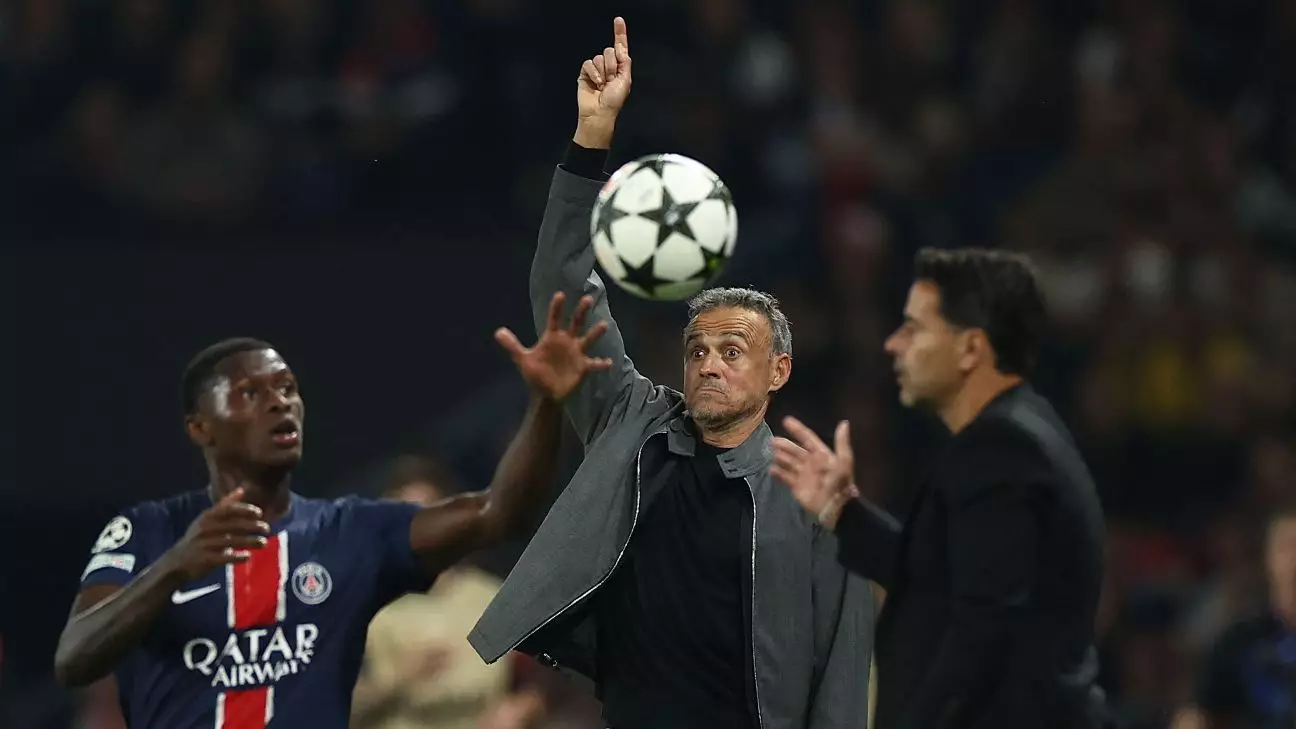The excitement surrounding the Champions League has always been palpable, but with the introduction of the new format, it also brings a wave of uncertainty. Paris Saint-Germain’s recent victory over Girona serves as a microcosm of this unpredictability. Manager Luis Enrique finds himself grappling with the nuances and potential implications of this restructured competition. With the league phase set to feature each team playing eight matches against different opponents, the path to advancement appears convoluted. The top eight teams automatically qualify for knockout stages, while the next sixteen must battle through an additional round of eliminations. This intricate setup raises pressing questions regarding the evaluation of performance early on, as Enrique noted: “We don’t know the dimension of this competition with this format” – a sentiment that emphasizes both the anticipation and the apprehension associated with this unprecedented change.
In their encounter, PSG commanded the match for various stretches, showcasing their typical attacking flair. However, Girona’s formidable defense and tactical organization led to a game characterized by tension and suspense until the final moments. Enrique acknowledged the challenge Girona posed, humorously describing their tactics as making his team “dizzy.” The irony in this statement lies in the fact that while PSG held a significant advantage in possession and opportunities, Girona’s resilience made outright domination a challenge. This match illustrates how critical adaptability is in high-stakes environments. Teams are learning that it’s not enough to control possession; rather, it’s the ability to effectively break down organized defenses under pressure that often determines the outcome.
The dramatic lead-up to the game’s only goal underscores the thin margins in such tight contests. A calamitous error by Girona’s goalkeeper, Paulo Gazzaniga, transformed what could have been a hard-earned point into a bitter defeat. The fact that PSG’s decisive moment was a shot that squirted through Gazzaniga’s legs is a reminder of the frailty of even the most experienced players. It serves as a stark reminder in football: excellence can sometimes hinge on sheer luck or a solitary moment of miscalculation.
While PSG secured the win, it came at a cost. The injury to striker Marco Asensio raises broader concerns about squad depth and injury management throughout an extended season. Enrique’s confidence in the strength of his squad is commendable, yet it will be tested significantly as more matches come thick and fast. The mix of seasoned players and newcomers can only withstand pressure if they manage fatigue effectively. The modern game demands resilience, particularly for clubs with high aspirations like PSG.
In this light, the depth of a team’s bench isn’t just a resource; it’s a critical component of a club’s ambitions both domestically and in Europe. Asensio’s injury serves as a catalyst for discussing the importance of rotational strategies and ensuring players are adequately rested and fit for upcoming challenges. The road in Ligue 1 and the Champions League is long and arduous, and each player’s physical state will significantly influence the team’s overall performance.
After the match, despite the disappointment, Girona manager Michel expressed pride in his team’s performance. This perspective is vital as it reflects a commendable understanding of football’s complexities. While PSG undoubtedly walked away with the points, Girona’s approach and tenacity are admirable. Michel’s optimism speaks volumes about the culture of hard work and resilience he cultivates within the squad.
As PSG prepares for their next fixture away to Reims and Girona looks to bounce back in LaLiga, lessons from this match linger. With the uncertainty of the new Champions League format looming large, both teams will be required to adapt, evolve, and potentially recalibrate their strategies as the season unfolds. The stakes are higher than ever, and adapting to these changes will be crucial to achieving success in an unpredictable and challenging environment. As the group stages progress, it remains to be seen which teams will emerge victorious, and who will stumble along the way.

Leave a Reply